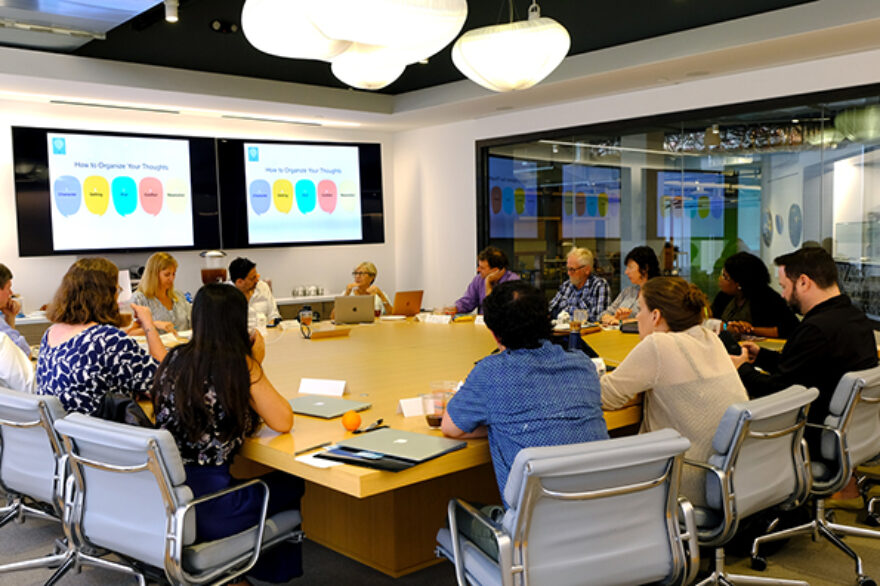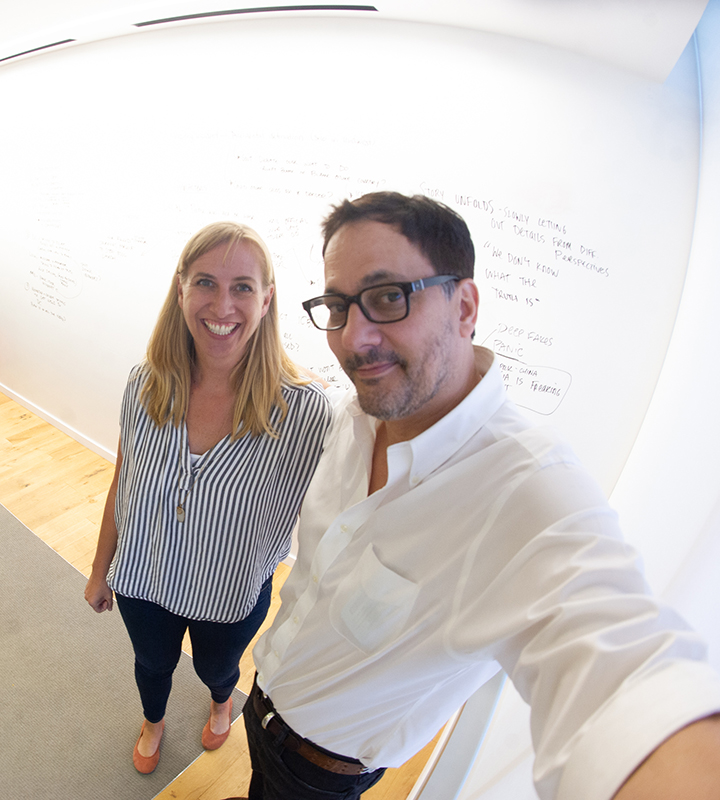Atomic Storytelling: Writing the Nuclear Narrative

Writer/producer Sarah Watson (“The Bold Type,” “Parenthood”) opened the Atomic Storytelling workshop with a quote from the film “Dead Poets Society,” meant to inspire students at an elite boarding school to look at writing with an authentic and emotional perspective: “No matter what anybody tells you, words and ideas can change the world.”
The workshop, held Aug. 8-9 at Serendipity Labs in Hollywood, was co-hosted by Hollywood, Health & Society, Ploughshares Fund, N Square Collaborative and Nuclear Threat Initiative (NTI). The interactive workshop brought together nuclear weapons professionals, advocates and policy experts to learn how storytelling can have added impact, and to develop skills to use in their own professional lives.
Watson, the lead instructor, offered techniques on creating compelling narratives that integrate their wealth of expertise and experience with emotion and key elements of story structure to convey important messages in meaningful ways. The first exercise asked participants to conjure a vivid memory about an experience that elicited a strong emotion. Some tales had a nuclear theme, such as a heartbreaking visit to the Nagasaki Museum or the chilling sight of an actual bomb at a test site. Others shared about enduring and moving moments that provoked strong feelings of fear, worry, sadness and anger.
Photos | Atomic Storytelling 2.0
The two-day workshop guided the group through the narrative process, illustrated by excerpts from the film The Martian that demonstrated how a simple science experiment can conjure emotion when the stakes are high. The sessions also asked participants to put these skills into action with creative collaborative efforts, guided by Watson and writer/producer Tom Caltabiano (Everyone Loves Raymond, The Late Late Show, 95 Miles to Go) who offered professional feedback on the development of imaginative and entertaining scenarios. The room could feel the strength and potency of communicating with audiences through story. David Grae, executive producer of the CBS show Madam Secretary, screened an episode titled “Night Watch” about a near-accidental nuclear launch, describing how the episode was made authentic through consultations with experts who provided their experience and knowledge on nuclear threats and security.
The event provoked a lively discussion about effective storytelling strategy as a means for communicating nuclear threats among the participants, who were representing organizations that included the Center for Arms Control and Non-Proliferation, Stanford Center for International Security and Cooperation, Nuclear Age Peace Foundation, One Earth Future, and MIT Security Studies Program. The last writing prompt is worth all of us thinking about: There is a warning of an inbound nuclear attack. You have 15 minutes. What do you do?

